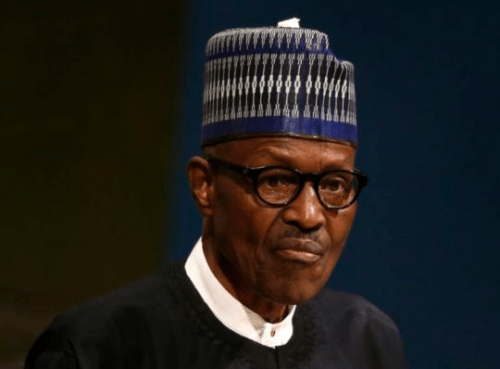
President Muhammadu Buhari on Monday said the partial closure of Nigeria’s borders was not caused solely because food products, particularly rice, which were being smuggled into Nigeria, but also because arms and ammunition, as well as hard drugs being ferried into the country.
President Buhari disclosed this while holding a bilateral meeting in London at the sidelines of UK-Africa Investment Summit 2020 with President Nana Akufo-Addo of Ghana.
The President, in a statement issued today by his media aide, Femi Adesina, said he could not keep his eyes open, and watch youths being destroyed through cheap hard drugs, and compromised security caused by unbridled influx of small arms.
“When most of the vehicles carrying rice and other food products through our land borders are intercepted, you find cheap hard drugs, and small arms, under the food products. This has terrible consequences for any country,” President Buhari said.
He said it was regrettable that the partial border closure was having “negative economic impact on our neighbours,” but said, “we cannot leave our country, particularly the youths, endangered”.
The President said the Sahel region was awash with small arms, which accounts for severe security challenges in Mali, Chad, Burkina Faso, Niger and Nigeria.
“We are in fact the biggest victims,” he said.
Buhari, who spoke on time frame for reopening the borders, said it would not happen till the final report of a committee set up on the matter was submitted and considered.
“We will get things sorted out. Our farmers, especially those who grow rice, now have a market, and are happy, and we are also concerned about hard drugs and weapons. Once the committee comes up with its recommendations, we will sit and consider them,” the President said.
President Akufo-Addo, while showing understanding of the need for Nigeria to protect her citizens, pleaded for “an expedited process, because the Nigerian market is significant for certain categories of business people in Ghana”.
… asks Britain to go after Nigerian fugitives
President Muhammadu Buhari has asked the United Kingdom to investigate “Nigerian fugitives” who “escaped to the UK” amid corruption allegations.
Presidential spokesman, Femi Adesina, quoted Buhari as making the request during a bilateral meeting with British Prime Minister Boris Johnson on Monday.
The two leaders met on the sidelines of the UK-Africa Investment Summit 2020 holding in London.
There have been reports that UK is one of the popular places Nigerian politicians accused of corruption hide their loot.
Buhari specifically said the cooperation of the UK is still needed in investigating Nigerians who fled to the country as fugitives.
“On the anti-corruption war, the President said though it was slow but painstaking, the cooperation of the National Crime Agency of UK was still needed, particularly in the investigation of fugitives from Nigeria finding accommodation in the United Kingdom,” Adesina said in a statement.
Buhari was also said to have told Johnson of the development strides recorded by his administration in various sectors.
He said achievements in agriculture is gradually leading to self-sufficiency in rice and other grains, saving the country billions in foreign exchange.
On the war against insurgency, the president said things were a lot better, “with the disabuse of the minds of the people on the true philosophy of Boko Haram.”
He said the main challenge was in the area of resettling person displaced by the insurgency.
“We have a long history with the British military, and we are collaborating,” Buhari reportedly said.
In his remarks, Johnson thanked Buhari for being “a regional leader who gives strong encouragement to the West.”
Johnson pledged that the necessary hand of fellowship would be extended to Nigeria on its war against corruption, through the National Crime Agency.
He pledged to cooperate with Nigeria and other African countries in the inter-basin water transfer, which could solve the Lake Chad problem, and enhance security in the sub-region.